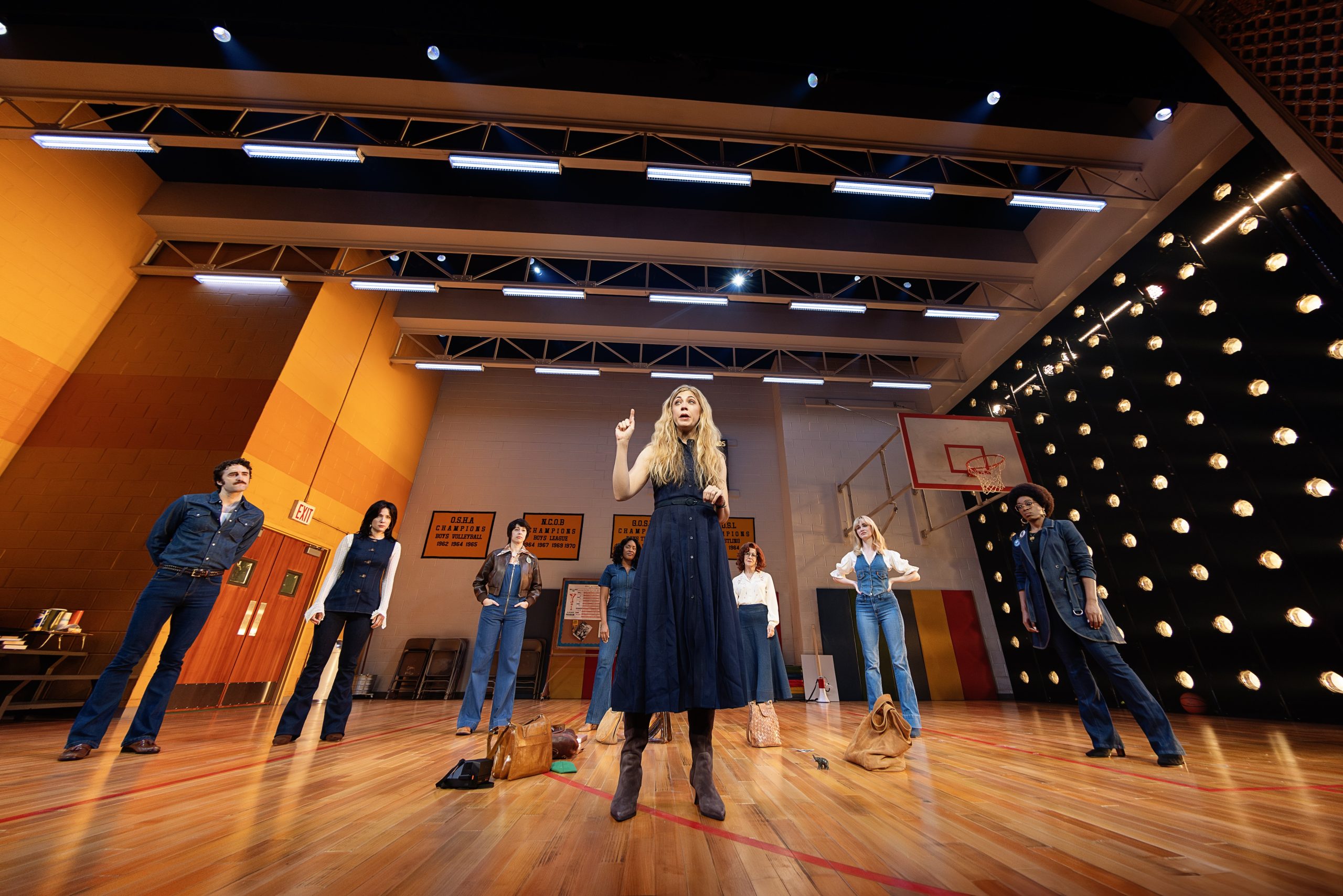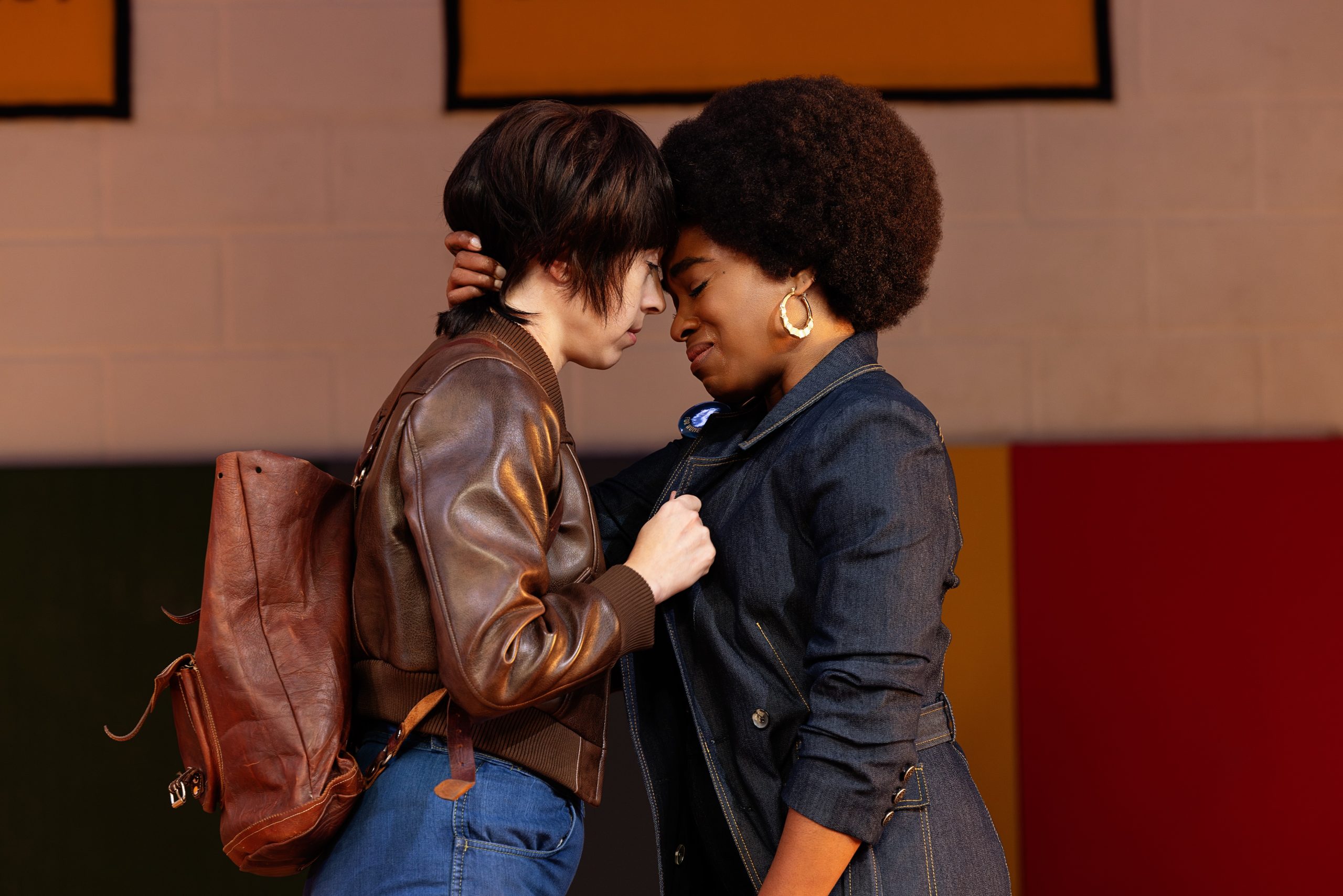Kristolyn Lloyd, Irene Sofia Lucio, Betsy Aidem and Audrey Corsa in the Broadway production of “Liberation” by Bess Wohl, directed by Whitney White
Photo: Little Fang
A group of women sits before us—completely nude, unguarded, and unashamed. They are young and old, Black and white, straight and gay. Their bodies are diverse and real. This isn’t a stunt or a provocation. It’s an act of defiance and vulnerability—an exercise inspired by an article in the feminist magazine Ms. that urged women to reclaim their bodies and confront the shame society taught them to feel.
In “Liberation,” Bess Wohl’s daring and deeply analytical new play, the act of exposure is both literal and intellectual. Wohl strips away nostalgia and ideology to examine how the 1970s women’s liberation movement reshaped lives, where it fell short, and what its legacy means today. She’s less interested in celebrating the past than in interrogating it—probing questions of identity, sacrifice, and progress with the precision of a social scientist and the empathy of a dramatist.
After earning acclaim Off-Broadway, “Liberation” arrives on Broadway with its ambition and complexity intact. Set in the gym of a recreation center in Ohio in the early 1970s, the play centers on a consciousness-raising group of women who meet weekly to debate, commiserate, and imagine dismantling the patriarchy. The setting—a semicircle of folding chairs under fluorescent lights—could not be plainer, yet it becomes a laboratory for ideas: a place where conversation becomes activism and self-examination becomes rebellion.

At the heart of the play is Lizzie, portrayed with intelligence and restraint by Susannah Flood, who both narrates and steps into the role of her late mother, the group’s leader. Lizzie approaches the past like an investigative journalist—curious, skeptical, and searching. Through interviews with the surviving women decades later, she tries to understand why the movement’s promise was never fully realized and what lessons it still holds in a time when many fear progress slipping away.
“Liberation” is a memory play in form and a conversation in spirit—linear but framed through reflection and metatheatrical shifts that blur the line between past and present. Wohl builds the play around Lizzie’s inquiry, moving fluidly between the group’s 1970s meetings and her present-day search for understanding. The structure is analytical and self-aware, propelled less by plot than by questions and debate.
The women confront one another and themselves, debating whether protest still matters, whether personal transformation can lead to social change, and whether liberation always requires loss. For audiences unfamiliar with the concept of “consciousness-raising,” “Liberation” offers both a history lesson and a provocation—a reminder that genuine progress begins not with slogans but with difficult, ongoing conversation.

The ensemble is uniformly strong. Betsy Aidem lends weary authority to Margie, the older housewife still searching for purpose. Kristolyn Lloyd’s Celeste crackles with wit and conviction. Adina Verson’s Susan, a sharp-tongued biker lesbian, mixes sarcasm with yearning. Irene Sofía Lucio gives Isidora, an Italian immigrant seeking citizenship, warmth and quiet anxiety. Audrey Corsa captures the erosion of youthful optimism in Dora, while Kayla Davion’s Joanne brings empathy and humor to the group. Charlie Thurston, as Bill, Lizzie’s father and the play’s lone sustained male figure, provides moments of tenderness and perspective.
Whitney White directs with clarity, ensuring that the play’s intellectual intricacy remains grounded and legible. She keeps the overlapping dialogue and time shifts coherent, giving space for both argument and reflection while maintaining an ensemble rhythm that feels organic and alive.
“Liberation” is not an easy play. It’s demanding, ambitious, and intentionally messy. Some of its observations, such as the suggestion that marriage and motherhood can erase one’s sense of self, remain deeply relatable and unsettling. It offers no answers, only more debate. At a time when the idea of progress feels fragile, Wohl’s play insists that the search for freedom, whether personal or political, is never finished.
James Earl Jones Theatre, 138 W. 48th St., liberationbway.com. Through Jan. 11.
→ Continue reading at amNY
